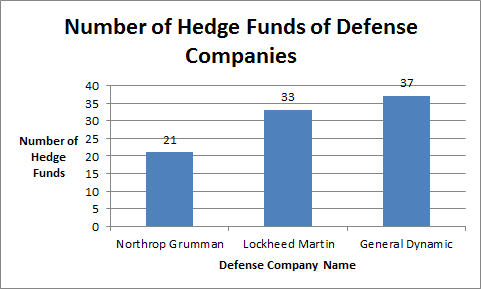In Defense Of Hedge Funds_1
Post on: 26 Июнь, 2015 No Comment

July 08, 2007
Hedge fund assets could hit $2 trillion this year, a staggering number that has many investment pros saying there’s too much money chasing too few opportunities and, thus, these private partnerships have seen their best days. Ed Easterling, 47, founder and president of Crestmont Research in Dallas, takes issue with the critics. After working 20 years in private equity, Easterling established his firm in 2000 to select hedge funds for high-net-worth investors. He also teaches a course on hedge funds at Southern Methodist University’s Cox School of Business. Eastering spoke with BusinessWeek correspondent Aaron Pressman.
Is it right to say hedge funds failed in 2006 because they trailed the S&P 500 on average?
No. The idea behind a hedge fund is to control downside risk. If you’ve done that, you don’t need nearly as much of the upside to just match market returns over time. Let’s say you could break even in months when stocks go down. What share of the upside during up months would you need to match market returns over time? Most people think it’s close to two-thirds but it’s just 30%. Last year some people said hedge funds didn’t work because they got a 12% return in a 15% market environment. That works if you can also avoid the downside.
Do hedge fund indexes overstate average returns because bad funds can drop out whenever they want to?
Hedge funds list their returns in those databases voluntarily, so investors can see them. The databases act like a dating service. We’ve found that some of the best funds don’t report because they’re closed to new investors. Some leave the databases if they’re performing well because they no longer need the exposure. Studies have shown that twice as many funds withdraw from index databases for good performance than drop out for bad.
Many people also see the fees on hedge funds and complain that they’re too high. Are they?
People grew very fee-conscious in the ’90s, and it’s probably causing them to adopt hedge funds slowly. As with professional fields, there is often a strong relationship between the level of performance and level of compensation. If manager skill is the source of the return, well, you get what you pay for.
Keep in mind that in general, the majority of hedge fund fees are profit sharing, which makes the fees self-adjusting. If performance declines, so will the fees. And the fees are in line with other sorts of alternative investments. If we look at private equity, venture capital, real estate, timber, and so forth, the overall level of fees is consistent.
Don’t hedge funds use a lot of borrowed money, which creates more risk?
Most hedge funds employ modest or no leverage, and relatively few use leverage to boost returns from general market exposure. Actually, most funds use leverage—under a loose definition of the term —to add hedges to the portfolio in order to reduce risk.
Are you concerned that the hedge fund industry has become too big?
Well, presumably the concern would be lower returns. If you look, despite record capital and a record numbers of hedge funds, they had great returns in 2006. It has continued into this year.
In aggregate, even if there is $2 trillion in these funds, the markets within which they participate are more than $100 trillion. So hedge funds still represent less than 2% of global financial assets. The dollars sound big, but the key is that the fields they operate in are even bigger.

Didn’t convertible arbitrage funds suffer a few years ago from too much money?
That’s a great example of what happens when too much money goes into one niche. People didn’t lose a lot of money, but the returns diminished significantly. Then money came out, and it has been a terrific strategy over the past year or so.
Hedge funds, because of the way they operate, can lead to overinvestment in certain markets. Yet, as we saw with converts, the markets will ultimately correct. Even then, it didn’t cause a major blowup.
Financial markets are not always efficient and perfectly priced, and the actions of hedge funds will help iron out the inefficiencies and get them back in line. Over time, we’ll see continued proliferation of new investment styles. Any time a new market gets active, whether its energy futures or weather derivatives, hedge funds come in. That enables the industry to expand without the kind of concentration that crimps returns.
Do you agree when people say hedge funds are lightly regulated?
No. It’s another myth. Hedge funds are required to comply with every rule, regulation, and law that affects virtually all investors in the financial markets. Then there are a variety of investor-related laws and regulations that impact who can invest with hedge funds. There are state and federal laws that require some managers to register as investment advisers—which adds additional regulations and requirements, including periodic examinations and filings.
Why are there so many myths, in your view, around hedge funds?
Laws and regulations preclude hedge funds from discussing their activities publicly, so they appear exclusive and elusive, though not necessarily by choice. When the underinformed view an unfamiliar process that operates with different principles and objectives, the natural result is myth and misunderstanding.














